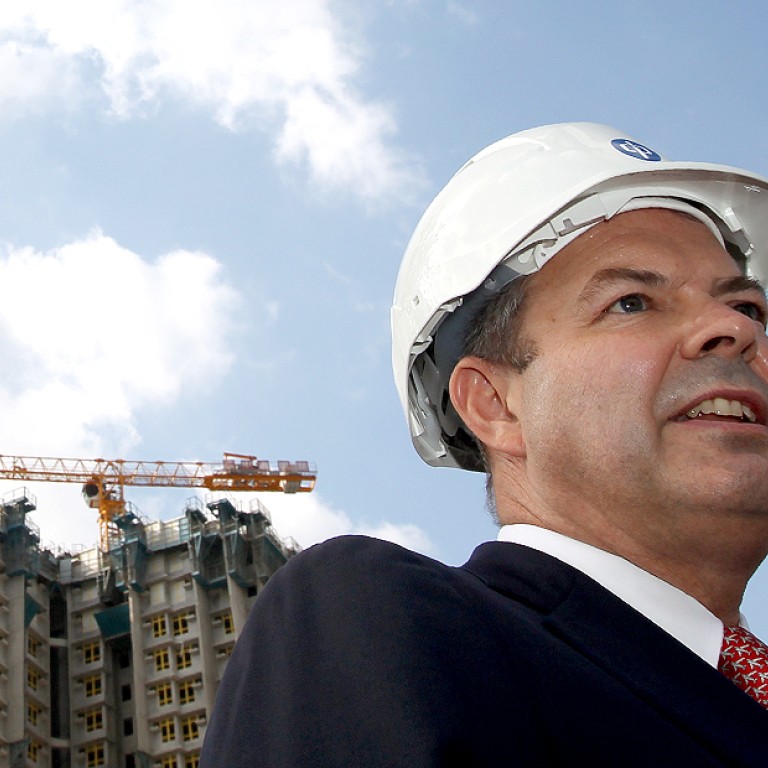
Cost of importing power from China should be Hong Kong's first consideration, says CLP boss
"Tens of billions" of dollars in infrastructure will be needed to realise the government's plan to have 30 per cent of Hong Kong's power imported from the mainland by 2023, says CLP chief executive Richard Lancaster.
"Tens of billions" of dollars in infrastructure will be needed to realise the government's plan to have 30 per cent of Hong Kong's power imported from the mainland by 2023, says CLP chief executive Richard Lancaster.
But the interests of industry and consumers were more important than the cost, he said after the annual shareholders' meeting of CLP, the larger of the city's two power suppliers.
"The infrastructure cost, when amortised over 40, 50 years, is relatively small. The more important and more expensive consideration is the cost of energy you are importing," he said, citing CLP's annual gas import bill of over HK$10 billion.
More important and expensive … is the cost of energy you are importing
The plan to import power from the mainland to meet environmental protection goals has fired debate in Hong Kong.
Those against the proposal say the city, as a major international financial centre with a heavy concentration of high-rise buildings, cannot afford the risk of relying on power supply from the mainland. Others believe supply risks are overstated and can be managed through proper infrastructure design.
Lancaster said CLP had maintained high supply reliability having imported 30 per cent of its power from Shenzhen's Daya Bay nuclear plant via dedicated power lines for decades.
China Southern Power Grid will soon become a major business partner of CLP, which supplies Kowloon, the New Territories and Lantau. The monopoly power distributor in five southern provinces is about to complete the acquisition of 30 per cent of CLP's main Hong Kong operating unit.
Unlike CLP, Hongkong Electric (HKE), which supplies Hong Kong Island and Lamma Island, has no power trade arrangement with China Southern Power.
HKE managing director Wan Chi-tin on Wednesday warned of energy security risks and a weakening of Hong Kong's bargaining power if the city imports 30 per cent of its power. Instead, he said he supported building more gas-fired power plants as gas prices had peaked three years ago.
CLP Power Hong Kong vice-chairwoman Betty Yuen So Siu-mai did not share his view, saying gas prices were hard to predict.
While CLP earlier warned it would need substantial increases in power prices in the next few years to cover higher gas costs, Yuen noted CLP's current power price was similar to levels in Guangzhou, Dongguan and Shenzhen.
CLP would like more flexibility in the options that have been tabled so far to ensure reliability, pollution-control and affordability objectives, she said.

